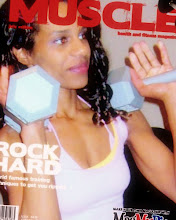Alcohol and Exercise
Research has proven that even small amounts of alcohol with increase muscular endurance and the output of strength, although these types of benefits are very short lived. After 20 minutes or so, the problems will begin to surface. All of the negative side effects associated with alcohol will easily outweigh any possible benefits that it can have.
No matter how you look at it, alcohol is a poison that can really harm your body if you are not careful.
The negative side of alcohol can reduce your strength, endurance, aerobic capability, recovery time, ability to metabolize fat, and even your muscle growth as well. Alcohol will also have an effect on your nervous system and brain. If you use it long term, you can cause severe deterioration of your central nervous system. Even with short term use, nerve muscle interaction can be reduced which will result in a loss of strength.
Once alcohol reaches the blood cells, it can and probably will damage them. With alcohol users, inflammation of the muscle cells is a very common thing. Over periods, some of some cells damaged can die which will result in less functional muscle contractions. Drinking alcohol will also leave you with more soreness of your muscles after you exercise, which means that it will take you a lot longer to recuperate.
Alcohol will also have many different effects on your heart and circulatory system as well. When you drink any type of alcohol, you may begin to see a reduction in your endurance capabilities. Anytime you drink, your heat loss will increase, due to the alcohol simulating your blood vessels to dilate. The loss in heat can cause your muscles to become quite cold, therefore become slower and weaker during your muscle contractions.
Drinking alcohol can also lead to digestive and nutrition problems as well. Alcohol causes a release of insulin that will increase the metabolism of glycogen, which spares fat and makes the loss of fat very hard. Due to alcohol interfering with the absorption of several key nutrients, you can also become anemic and deficient with B type vitamins.
Because your liver is the organ that detoxifies alcohol, the more you drink, the harder your liver has to work. The extra stress alcohol places on your liver can cause serious damage and even destroy some of your liver cells.
Since alcohol is diuretic, drinking large amounts can put a lot of stress on your kidneys as well. During diuretic action, the hormones are secreted. This can lead to heightened water retention and no one who exercises will want this to happen.
If you must drink alcohol, you should do it in moderation and never drink before you exercise, as this will impair your balance, coordination, and your judgment. Think about your health and how you exercise - and you may begin to look at things from a whole new prospective.





